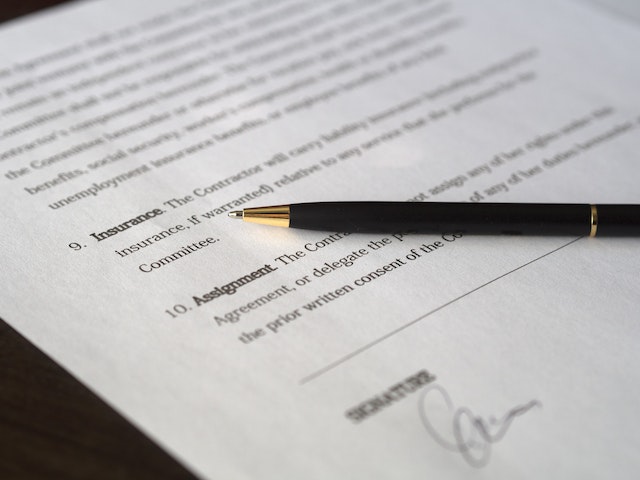
Managing rental properties yourself can be appealing. It gives you direct control over your investments, potentially saving money on property management fees.
However, the DIY route is not without its pitfalls. Many first-time landlords underestimate the complexities of property management and the potential mistakes that can lead to costly consequences.
To help you navigate this path, keep reading this article to learn some common mistakes to avoid:
Ignoring Legal Responsibilities
One of the biggest mistakes DIY landlords make is failing to stay on top of legal requirements. Rental laws vary by location and can change frequently.
Failing to comply with these regulations can result in hefty fines or even legal action. Ensure you understand local laws regarding leases, security deposits, eviction procedures, and property maintenance.
Staying informed and compliant is essential for avoiding legal trouble.
Underestimating Maintenance and Repair Needs
Maintaining a rental property involves more than just collecting rent. Regular maintenance and timely repairs are crucial to keeping your property in good condition and retaining tenants.
Many DIY landlords underestimate the time and cost involved in property upkeep. Develop a maintenance schedule and budget for repairs to avoid unexpected expenses and tenant dissatisfaction.
Overlooking Tenant Screening
Tenant screening is critical to gain good and long-term tenants. Skipping this step or performing a superficial screening can lead to issues like missed rent payments, property damage, or even legal disputes.

Conduct thorough background checks, including credit history, criminal records, and previous landlord references, to ensure you’re renting to reliable tenants.
Setting Unrealistic Rent Prices
Determining the right rent price is essential for attracting tenants and maximizing your rental income.
Setting the rent too high can result in extended vacancies, while setting it too low may not cover your expenses. Research local rental markets and consider factors like property size, location, and amenities to set a competitive and fair rent price.
Neglecting Effective Communication
Effective communication with tenants is crucial for a smooth rental experience. Neglecting this can lead to misunderstandings, missed maintenance requests, and tenant dissatisfaction.
Establish clear communication channels and respond promptly to tenant inquiries and concerns. This approach helps build a positive landlord-tenant relationship and can prevent potential conflicts.
Being Too Lenient or Too Rigid
Finding the right balance in landlord-tenant relationships can be challenging. Being too lenient may lead to abuse of the lease agreement, while being too rigid can create unnecessary tension.
Set clear, fair policies for issues like late rent payments or maintenance requests, and apply them consistently. Flexibility should be used wisely, and always documented to avoid misunderstandings.
Failing to Document Everything

Proper documentation is essential for protecting yourself legally and financially. Failing to keep detailed records of lease agreements, maintenance requests, repairs, and rent payments can create complications if disputes arise.
Maintain thorough and organized records to support your position in any potential legal or financial matters.
Ignoring Marketing and Tenant Acquisition
Finding and retaining quality tenants involves more than just listing your property. Effective marketing strategies are necessary to attract potential renters.
DIY landlords sometimes overlook this aspect, relying solely on word-of-mouth or outdated listing methods. Utilize online rental platforms, social media, and local advertising to reach a broader audience and reduce vacancy periods.
Overlooking the Importance of Insurance
Adequate insurance coverage is vital for protecting your investment. Many DIY landlords neglect to review or update their insurance policies, which can lead to insufficient coverage in case of property damage, liability claims, or other issues.
Ensure you have comprehensive landlord insurance that covers property damage, liability, and loss of rental income.
Considering Professional Property Management
While managing your own property can seem like a cost-effective solution, hiring a professional property manager can offer numerous benefits. Here’s why it might be worth considering:
Expertise and Experience
Professional property managers bring extensive knowledge and experience to the table. They are familiar with local laws, effective tenant screening practices, and maintenance procedures.

Their expertise can help you avoid common mistakes and manage your property more efficiently.
Time Savings
Managing a rental property requires significant time and effort. From handling maintenance requests to dealing with tenant issues, the workload can be overwhelming, especially if you have other commitments.
A property manager takes care of these responsibilities, allowing you to focus on other aspects of your life or investments.
Reduced Vacancy Rates
Property managers are skilled in marketing and tenant acquisition. They have access to multiple listing platforms and networks, which can help reduce vacancy rates and attract high-quality tenants more quickly.
Their expertise in setting competitive rental prices also ensures you maximize your rental income.
Efficient Rent Collection and Financial Management
Professional property managers handle rent collection, late payment issues, and financial record-keeping.
They ensure timely rent collection and provide you with detailed financial reports, simplifying your financial management and reducing the risk of missed payments.
Legal Compliance
Staying compliant with rental laws can be challenging. Property managers are well-versed in legal requirements and can ensure your property adheres to local regulations. This reduces the risk of legal issues and potential fines.
Emergency Handling
Property managers are equipped to handle emergencies and urgent maintenance issues promptly.
Their access to a network of reliable contractors and repair services ensures that problems are addressed quickly, minimizing disruption for tenants.
Conclusion
While DIY property management can offer a sense of control and cost savings, it also comes with its challenges.
Avoiding common mistakes and considering the benefits of professional property management can significantly impact the success of your rental investment.
If the demands of managing your property outweigh the benefits, hiring a property manager might be a wise investment for ensuring a smooth and profitable rental experience.
To help you become successful in your rental endeavors, consider partnering with Mark Thomas Properties Property Management.
